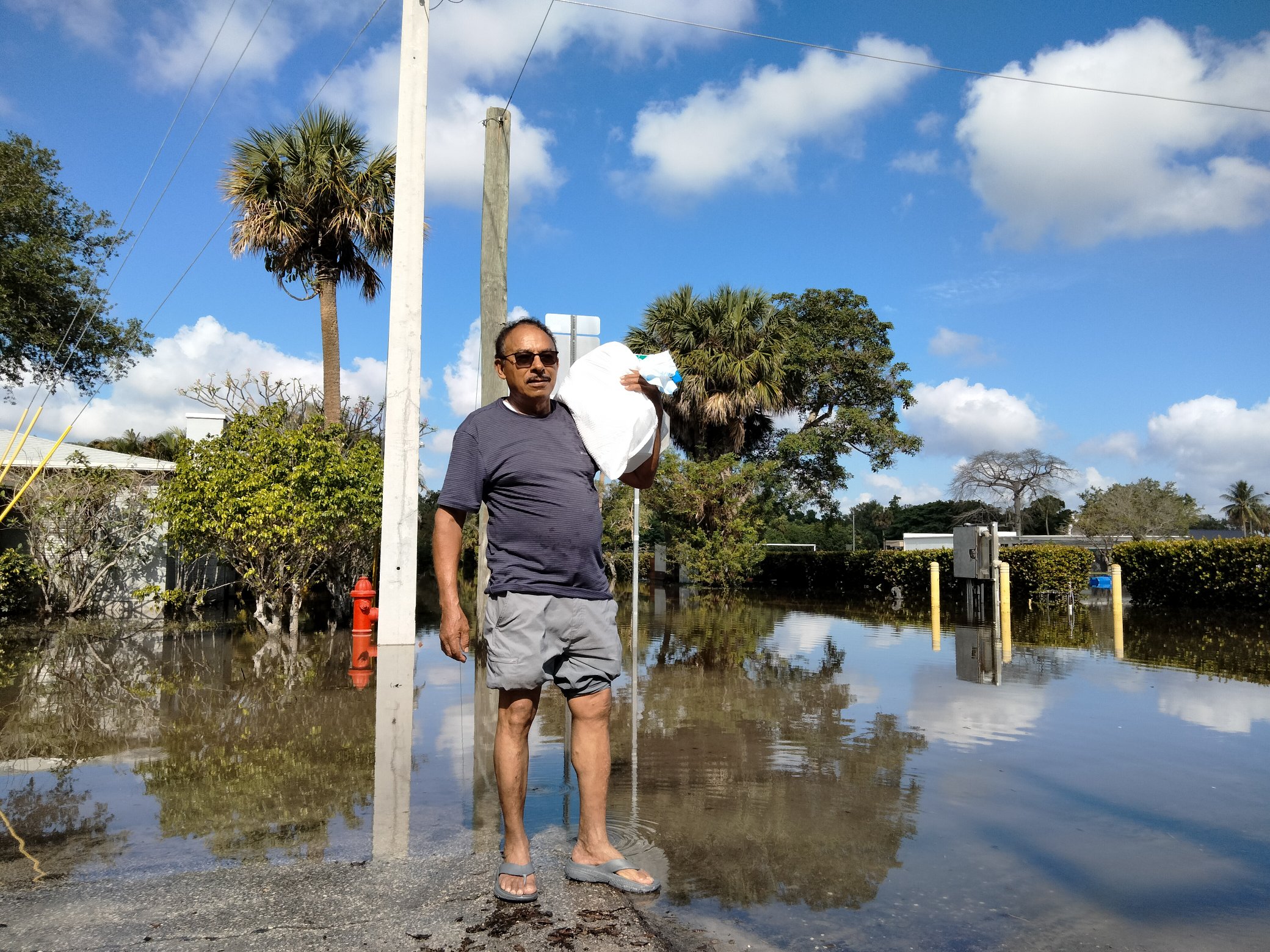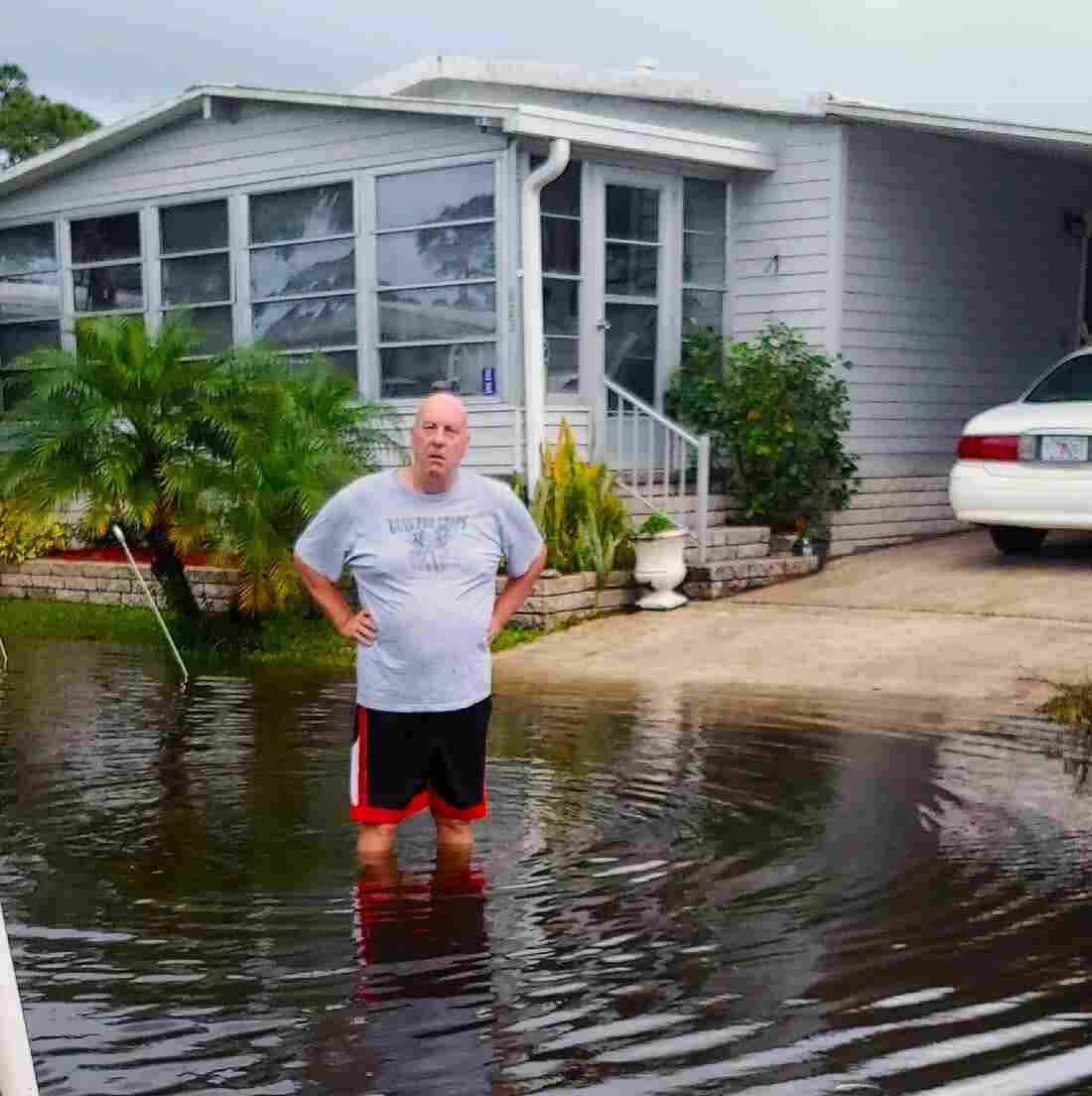The recent news about former President Joe Biden's health has certainly captured the attention of many people, so it's almost understandable why there's a lot of discussion. We learned that Mr. Biden, at 82 years old, received a diagnosis of prostate cancer, which his office shared on a Sunday. This news, as a matter of fact, brings important health topics to the forefront, reminding us how health matters affect everyone, no matter their public standing.
When a public figure like a former president shares personal health details, it often sparks a wider conversation about the condition itself. For many, this might be the first time they've heard specific terms like "Gleason score" or "metastatic prostate cancer," and that's perfectly fine. It gives us, you know, a chance to learn more about a health challenge that affects so many families.
This article aims to shed some light on what we know about Joe Biden's prostate cancer diagnosis, drawing directly from the information his office provided. We'll also, in a way, explore general facts about prostate cancer, its signs, and what a diagnosis like this can mean. Our goal is to offer clear, helpful information that helps everyone better understand this important health topic.
Table of Contents
- Who is Joe Biden? A Brief Look at a Public Life
- Understanding Joe Biden's Prostate Cancer Diagnosis
- Prostate Cancer: What You Should Know
- Living with a Serious Diagnosis: The Broader Conversation
- Frequently Asked Questions About Prostate Cancer
- A Path Forward: Awareness and Support
Who is Joe Biden? A Brief Look at a Public Life
Joe Biden has, you know, spent many years serving the public in various roles. He has been a familiar face in American politics for decades, taking on significant responsibilities. Before becoming president, he served as Vice President for two terms, and before that, he was a long-time Senator from Delaware. His career, in some respects, has been marked by a focus on public service and policy making.
His journey through public life has included many personal moments, both joyful and challenging, which he has often shared with the public. This recent health news, basically, adds another personal chapter to his very public story. It reminds us that even those in prominent positions face personal health challenges, just like anyone else.
Personal Details & Bio Data
| Full Name | Joseph Robinette Biden Jr. |
| Age at Diagnosis | 82 years old |
| Notable Roles | Former President of the United States, Former Vice President, Former U.S. Senator |
| Date of Diagnosis Announcement | Sunday, May 18 (news received on Friday) |
| Condition Noted | Metastatic Prostate Cancer, aggressive form, Gleason score 9 (Grade Group 5) with metastasis to the bone |
Understanding Joe Biden's Prostate Cancer Diagnosis
The announcement about Joe Biden's prostate cancer diagnosis brought with it some specific details that are important to understand. His office, on a Sunday, shared that he had been diagnosed with this health condition. This news, actually, came after he had seen his doctors on the preceding Friday.
It's very natural for people to have questions when such news breaks, especially when it involves a public figure. The information provided helps us get a clearer picture of the situation. It's a bit like putting together pieces of a puzzle to see the whole picture of what's going on with his health.
What We Know About the Diagnosis
According to his office, former President Joe Biden, at 82 years of age, has been diagnosed with prostate cancer. The statement, in fact, described it as an aggressive form of the disease. A key detail shared was that the cancer has spread, or "metastasized," to his bones. This means the cancer cells have traveled from the prostate to other parts of his body.
Another important piece of information given was a Gleason score of 9, which corresponds to a Grade Group 5. This score, you know, helps doctors understand how active the cancer cells appear under a microscope. A higher Gleason score, like a 9, typically indicates that the cancer cells look less like normal cells and are, generally speaking, more likely to grow and spread quickly. It's a way for doctors to gauge the cancer's potential behavior.
His team also noted that he is, as a matter of fact, reviewing different treatment possibilities with his medical team. This suggests that doctors are looking at all the options to find the best way to address his particular situation. It's a very personal process, and what works for one person might be different for another, depending on many factors.
The Nature of Aggressive Prostate Cancer
When a cancer is described as "aggressive," it usually means it has a tendency to grow and spread more rapidly than other types. For prostate cancer, an aggressive form, especially with a high Gleason score like 9, indicates that the cells are very active. This kind of cancer, you know, often requires more immediate and intensive approaches to care.
The fact that the cancer has spread to his bones, which is called metastasis, is also a significant aspect of the diagnosis. When cancer spreads, it means it has moved beyond its original spot. This can make treatment more involved, as doctors need to address the cancer in multiple places in the body. It's a serious development, to be honest.
Understanding the term "aggressive" is important because it shapes the conversation around potential treatments and the outlook. It means the medical team will likely consider a range of strategies to manage the disease effectively. This is, basically, about tackling a very active health challenge with determined action.
Prostate Cancer: What You Should Know
Prostate cancer is a type of cancer that begins in the prostate gland, a small walnut-shaped gland in men that produces the seminal fluid that nourishes and transports sperm. It's a very common cancer among men, especially as they get older. While some prostate cancers grow slowly and might not cause many problems, others can be more active, like what has been described for Joe Biden.
Learning about this health condition can be helpful for anyone, whether it's for personal awareness or to support someone they know. It's a topic that affects many families, and having some basic knowledge can make a difference. Understanding the general facts can help people feel a little more prepared, if that makes sense.
Common Signs and Symptoms
In its early stages, prostate cancer often doesn't show many signs, which is why regular check-ups can be quite important. When symptoms do appear, they can sometimes be similar to other, less serious conditions of the prostate. These might include, for instance, trouble passing urine, like a weak stream or needing to go often, especially at night.
Other signs could be blood in the urine or semen, or a feeling of discomfort in the pelvic area. If the cancer has spread, a person might experience bone pain, especially in the back, hips, or thighs. These are general signs, of course, and don't always mean cancer, but they are reasons to talk with a doctor to find out what's going on. It's always best to check things out.
It's worth noting that these symptoms can also be caused by non-cancerous conditions, such as an enlarged prostate. So, if someone experiences these things, it doesn't automatically mean they have cancer. But, you know, getting a proper medical evaluation is always the smart choice to figure out the cause and get the right advice.
Getting a Diagnosis: Tests and Procedures
If a doctor suspects prostate cancer, they will typically suggest a few tests. One common test is a PSA (Prostate-Specific Antigen) blood test, which measures a protein made by the prostate. High PSA levels can sometimes suggest prostate cancer, but they can also be high for other reasons, like an infection or an enlarged prostate, too. It's just one piece of the puzzle.
Another test is a digital rectal exam (DRE), where a doctor feels the prostate through the rectum to check for any unusual bumps or hard areas. If these initial tests raise concerns, a biopsy is often the next step. This involves taking small tissue samples from the prostate to look at them under a microscope. This is how doctors confirm the presence of cancer and determine its Gleason score, as was the case for Joe Biden, apparently.
If cancer is found, further imaging tests, such as MRI scans, CT scans, or bone scans, might be done to see if the cancer has spread to other parts of the body, like the bones. These tests help doctors understand the stage of the cancer, which is very important for planning the right approach to care. It's a thorough process, basically, to get a full picture.
Treatment Approaches for Prostate Cancer
The approach to treating prostate cancer depends on several things: how active the cancer is (its Gleason score), whether it has spread, the patient's age, and their overall health. For less active cancers that haven't spread, sometimes doctors suggest "active surveillance," which means closely watching the cancer with regular tests instead of immediate treatment. This is, you know, for cancers that are very slow-growing.
For cancers that are more active or have spread, like Joe Biden's, treatment usually involves more direct action. Options can include surgery to remove the prostate gland, radiation therapy (using high-energy rays to kill cancer cells), or hormone therapy, which aims to lower male hormones that can make prostate cancer grow. Chemotherapy might also be used, especially if the cancer has spread widely.
Often, a combination of these treatments is used, or they might be given in sequence. The decision about which treatment path to take is a very personal one, made in close discussion with a team of doctors. It's about finding the most effective strategy for that individual's specific situation. You can learn more about prostate cancer treatments from reliable health organizations.
Living with a Serious Diagnosis: The Broader Conversation
Receiving a serious health diagnosis, like prostate cancer, can be a life-changing event for anyone. It brings up many feelings and questions, not just for the person directly affected but also for their family and friends. When this news involves a public figure, it often, you know, takes on a broader meaning for society as a whole.
It can spark discussions, raise awareness, and sometimes even inspire people to take action regarding their own health. This is, in a way, one of the unexpected effects of such public announcements. It turns a personal health journey into a shared moment of reflection for many.
The Impact of Public Health News
When a prominent person, such as a former president, shares news about a health challenge like prostate cancer, it can have a significant impact. For one thing, it brings the condition into the public conversation, which can help to reduce any stigma associated with it. People might feel more comfortable talking about their own health concerns or seeking advice, which is pretty important.
Such announcements can also encourage people to learn more about the disease, its signs, and the importance of early detection. It might prompt individuals to schedule check-ups they've been putting off or to discuss their family health history with their doctors. In a way, it acts as a very public service announcement, raising awareness on a large scale. It's a powerful moment, actually, for public health education.
This kind of news can also, you know, highlight the fact that serious health conditions do not discriminate. They can affect anyone, regardless of their position or background. This shared human experience can foster a sense of connection and empathy among people, reminding us that we are all, in essence, in this together when it comes to health challenges.
Supporting Those Facing Cancer
For individuals facing a cancer diagnosis, and for their loved ones, support is incredibly important. This can come in many forms, from practical help with daily tasks to emotional understanding and encouragement. It's about being there, listening, and offering comfort during a challenging time. Sometimes, just being present and offering a kind word can make a real difference.
Families often find strength in connecting with support groups or organizations that offer resources and guidance. These groups provide a space where people can share experiences, learn from others, and feel less alone. It's a good way, basically, to find a community that truly understands what you're going through. You can learn more about support for cancer patients on our site.
It's also important for caregivers and family members to look after their own well-being. Supporting someone with a serious illness can be demanding, and taking time for self-care is not selfish; it's necessary. This shared journey requires strength from everyone involved, and that strength, you know, comes from being well-supported yourself. This page offers more insights on supporting loved ones.
Frequently Asked Questions About Prostate Cancer
What does a Gleason score of 9 (Grade Group 5) mean for prostate cancer?
A Gleason score of 9, which falls into Grade Group 5, indicates that the prostate cancer cells look very different from normal cells under a microscope. This score, you know, suggests a more active and aggressive form of cancer. It means the cancer is more likely to grow and spread quickly, so doctors typically recommend a more immediate and strong approach to treatment.
What does it mean if prostate cancer has metastasized to the bone?
When prostate cancer has metastasized to the bone, it means that cancer cells from the prostate have traveled through the bloodstream or lymphatic system and started to grow in the bones. This is a sign that the cancer is more advanced. It typically means that the treatment plan will need to address the cancer in multiple parts of the body, not just the prostate itself, which is a bit more involved.
What are the general treatment options for aggressive, metastatic prostate cancer?
For aggressive, metastatic prostate cancer, treatment usually involves a combination of approaches. This might include hormone therapy, which aims to reduce male hormones that fuel cancer growth. Chemotherapy might also be used to kill cancer cells throughout the body. Radiation therapy can sometimes be used to manage symptoms in areas where the cancer has spread, like the bones. The specific plan, you know, is always tailored to the individual's situation and how the cancer is behaving.
A Path Forward: Awareness and Support
The news of Joe Biden's prostate cancer diagnosis, honestly, brings a very personal health challenge into the public eye. It serves as a powerful reminder that health issues can affect anyone, regardless of their position. His openness, in a way, helps to raise awareness about prostate cancer, encouraging others to learn more and perhaps consider their own health.
Understanding the details of such a diagnosis, from the Gleason score to metastasis, helps us appreciate the seriousness of the condition. It also highlights the importance of medical advancements and the dedicated work of healthcare professionals. This is, basically, about facing a tough situation with knowledge and care.
For anyone touched by prostate cancer, whether personally or through a loved one, remember that resources and support are available. Talking with your doctor about any concerns, staying informed, and connecting with support networks can make a real difference. It's about taking steps forward, always, with hope and good information. We are, you know, all in this together, in a sense.



Detail Author:
- Name : Fletcher Kemmer
- Username : dorris03
- Email : ometz@yahoo.com
- Birthdate : 2000-03-18
- Address : 6072 Godfrey Place Suite 395 Marcosland, FL 10131
- Phone : 470.866.7668
- Company : Jones Ltd
- Job : Financial Analyst
- Bio : Porro impedit eos dolores voluptate et. Ratione quis cum quo voluptas odit ullam velit ex. Id veritatis accusantium corporis sint quo magni laudantium.
Socials
twitter:
- url : https://twitter.com/gregory5109
- username : gregory5109
- bio : Et pariatur et illo. Eligendi aut reprehenderit praesentium quisquam ipsum.
- followers : 352
- following : 196
facebook:
- url : https://facebook.com/gregory7412
- username : gregory7412
- bio : Dolorem est minus velit. Sit sed qui sit pariatur autem.
- followers : 363
- following : 1805
tiktok:
- url : https://tiktok.com/@wunschg
- username : wunschg
- bio : Omnis aperiam commodi ipsam voluptas. Id hic unde deserunt dolorem sint.
- followers : 5504
- following : 2790
linkedin:
- url : https://linkedin.com/in/gregory4988
- username : gregory4988
- bio : Temporibus a amet et iusto.
- followers : 347
- following : 2160
instagram:
- url : https://instagram.com/gregory.wunsch
- username : gregory.wunsch
- bio : Quasi velit consequatur aut impedit. Quia dolorem cum et rem veritatis facilis quis.
- followers : 6839
- following : 180

